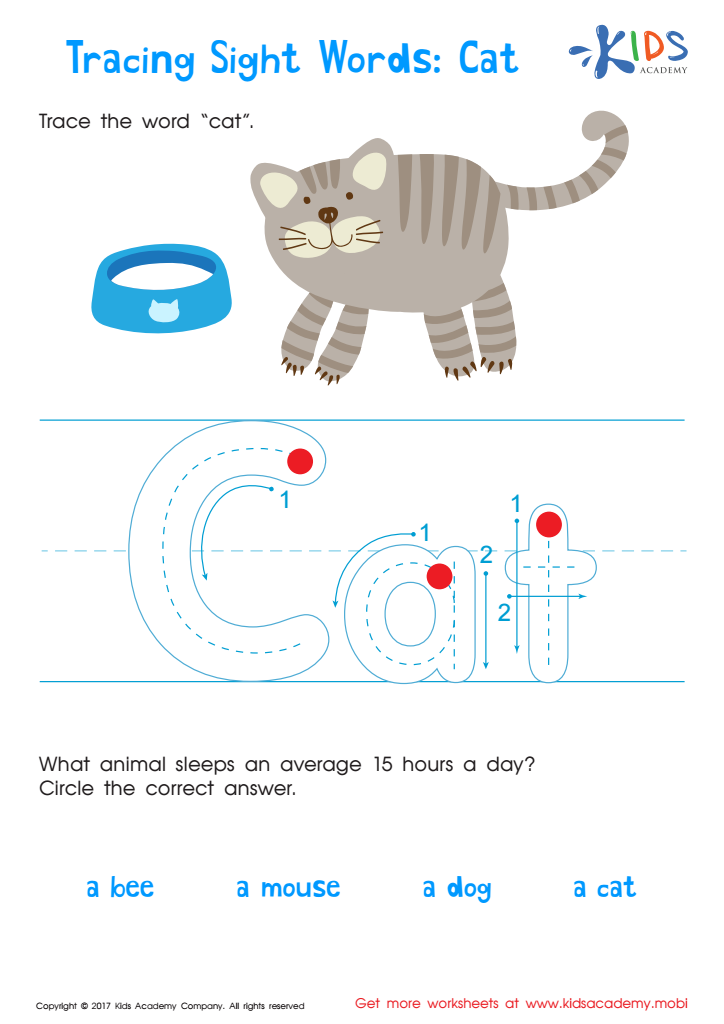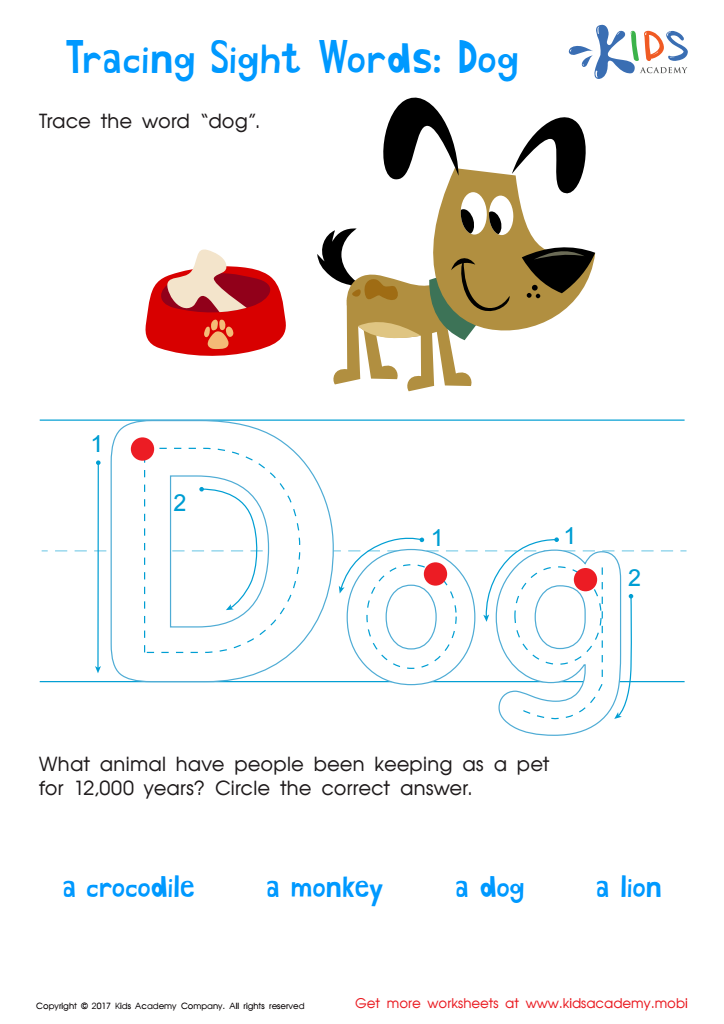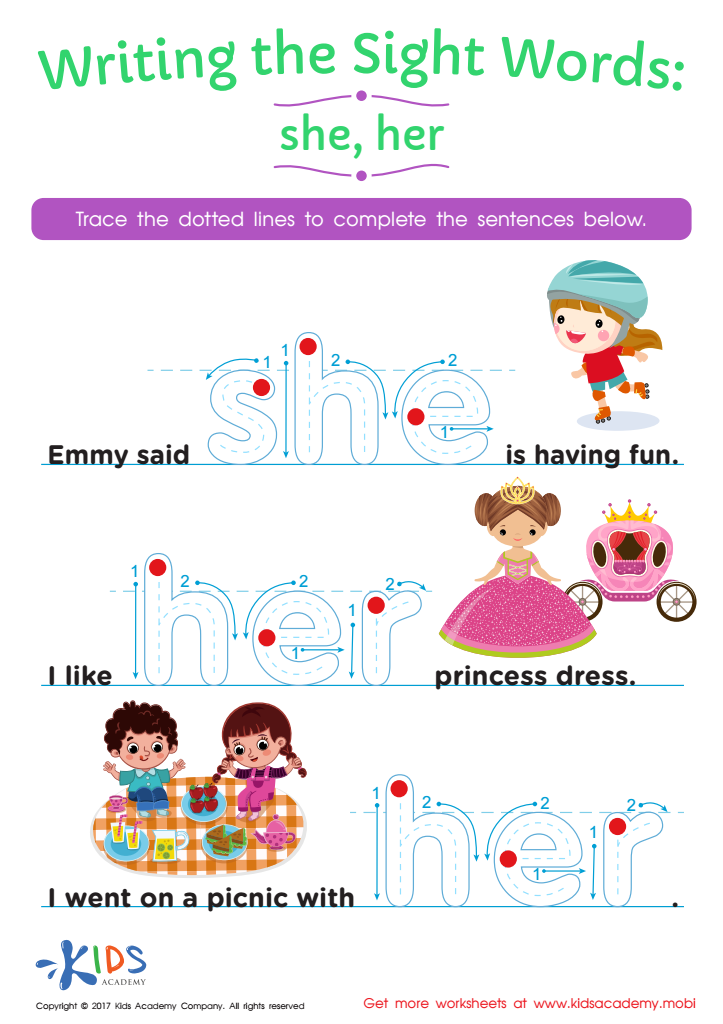Reading comprehension Normal Three Letter Words Phonics Worksheets for Ages 3-6
3 filtered results
-
From - To
Boost your child's reading skills with our "Reading Comprehension Normal Three Letter Words Phonics Worksheets for Ages 3-6." These engaging worksheets are designed to enhance early literacy by focusing on simple three-letter words. Perfect for preschoolers and kindergarteners, our phonics-based activities promote sound blending, word recognition, and comprehension skills. Each worksheet offers fun, age-appropriate exercises that help young learners improve their ability to understand and use everyday vocabulary. Prepare your little one for reading success with our expertly crafted resources, specially tailored to make learning enjoyable and effective. Start their literacy journey today!


Cat Printable Sight Words Worksheet


Dog Worksheet Sight Words Worksheet


She, Her Printable Sight Words Worksheet
Reading comprehension and phonics are foundational elements of early childhood education, particularly for children aged 3-6. This age represents a critical period for language acquisition and cognitive development, and placing emphasis on these skills can have long-lasting benefits.
Firstly, teaching children to comprehend what they read enhances their ability to process and retain information. Comprehension goes beyond mere word recognition; it involves understanding the meaning behind the words. Early mastery of reading comprehension builds a solid foundation for future learning across all subjects, as it is crucial for grasping new concepts and vocabulary.
Phonics, especially with normal three-letter words, is essential in this learning phase as it helps children understand the relationship between letters and sounds. This, in turn, aids in decoding unfamiliar words, facilitating smoother and more confident reading experiences. The simplicity of three-letter words provides a manageable and non-overwhelming introduction to phonics, allowing children to experience success early on, which cultivates a love for reading.
Encouraging these skills also supports better academic performance later in life. Children who develop strong early reading habits are more likely to become independent learners and critical thinkers. Therefore, parents and teachers focusing on reading comprehension and phonics during these formative years are investing in the child’s future literacy and educational success.
 Assign to My Students
Assign to My Students









